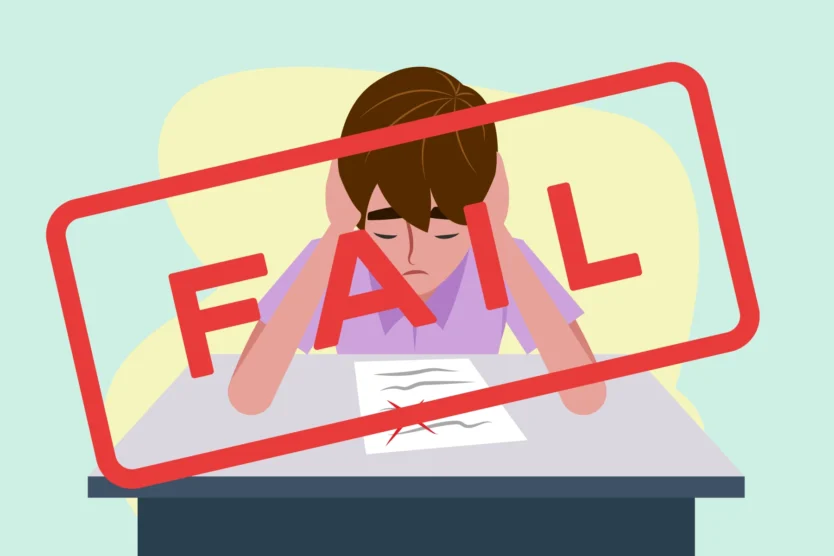
August 26, 2025 · Season 2 · Episode 4
How to Fail High School Without Even Trying
By Kenna Urwiller & Gage Boardman
High school can feel overwhelming, but it doesn’t have to trip you up. In this episode, Gage sits down with Scottsbluff Assistant Principal Kenna Urwiller to talk about the habits that can either hold you back or set you up for success. From keeping up with homework and attendance to building better routines and preparing for graduation, this conversation is all about staying on track and making the most of your time in high school.
Failing high school isn’t usually a conscious choice. It happens little by little when small habits pile up. Skip a class here, ignore an assignment there, scroll on your phone instead of studying, and suddenly graduation feels out of reach. The sad truth is, failing high school is actually pretty easy. The good news? It’s just as easy to turn things around once you know what traps to avoid.
In this episode of Countdown to College, we sat down with Kenna Irwiller, assistant principal at Scotts Bluff High School, to break down students’ most common mistakes and how to avoid them.
Attendance Matters
Missing class creates gaps that can snowball quickly. Students often underestimate how hard it is to catch up, and inconsistent attendance makes it harder to stay engaged with the class and the teacher. Simply showing up every day builds accountability, routine, and stronger relationships that make learning smoother.
Homework Counts
Homework is practice, much like training before game day. By working through assignments, students reinforce skills and concepts introduced in class. Those who skip homework miss the chance to build confidence and understanding, leaving them unprepared for quizzes, exams, and projects.
Exams Require Preparation
Walking into a test without studying is setting yourself up for stress and failure. Exams are checkpoints that reveal how well a student has practiced and prepared. Students who don’t review notes or ask questions ahead of time often panic and perform poorly, which leads to discouragement and lost confidence.
Limit Distractions
Distractions pull students away from learning in ways they may not realize. Multitasking with phones during class or study time reduces comprehension and memory retention. Even quick checks of social media break focus, making it harder to stay engaged. Setting boundaries with technology helps students stay present and absorb more from their lessons.
Stay Organized
Organization impacts time management, assignment completion, and stress levels. Students who keep planners, organize materials, and track deadlines tend to perform better and feel more in control. Disorganization, on the other hand, leads to missed assignments, forgotten tests, and unnecessary anxiety.
Communicate With Teachers
Teachers want students to succeed, but they can’t help if they don’t know what’s happening. Whether it’s confusion about a lesson, struggles at home, or needing extra support, students who reach out and communicate have a better chance of overcoming obstacles. Open communication fosters trust and connects students with resources that make a difference.
Parents Play a Role
Parents are partners in education, and their involvement makes a noticeable impact. Students whose parents stay engaged by checking grades, asking about homework, and encouraging good habits are more likely to thrive. Support doesn’t mean doing the work for their student. It’s about providing accountability, encouragement, and structure at home.
It’s Never Too Late
Kenna’s message was simple: don’t give up, and don’t be afraid to ask for help. Teachers, counselors, and administrators want to see students succeed, but students need to take the first step. Small changes like attending class regularly, organizing materials, and setting aside time for studying can make a big difference.
Final Thoughts
High school success doesn’t come down to luck—it comes down to choices. Skipping class, neglecting homework, avoiding studying, or ignoring responsibilities are all preventable habits. Students can take control of their education by showing up, staying organized, and leaning on support systems. The takeaway is clear: success in high school is built on consistency and effort, and it sets the stage for opportunities in college and beyond.
